Posts Tagged ‘National League for Democracy’ (266 found)
Walking into Beatings, Running Away from Gunfire
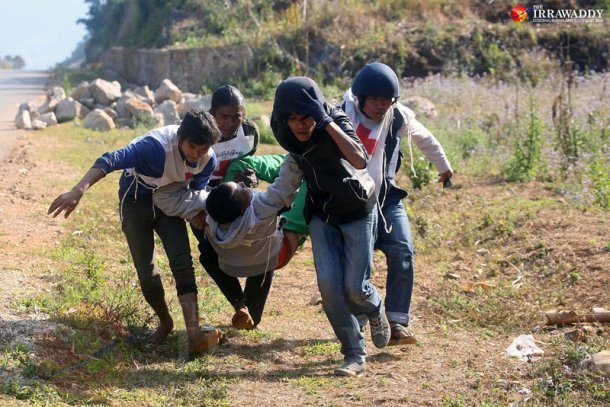 This week has seen the various organs of the state being employed to oppress and commit violence against students marching for education reform, workers striking for their rights, and ethnic nationality Kokang fleeing conflict. Thus we have seen the use of guns, thugs, repressive laws, and police brutality, exposing not just the range of the tools of government subjugation of its people, but the depths to which it will go to maintain power.
This week has seen the various organs of the state being employed to oppress and commit violence against students marching for education reform, workers striking for their rights, and ethnic nationality Kokang fleeing conflict. Thus we have seen the use of guns, thugs, repressive laws, and police brutality, exposing not just the range of the tools of government subjugation of its people, but the depths to which it will go to maintain power.
In downtown Rangoon on 5 March, 2015, around 200 people gathered to show their solidarity with the student marchers, currently barricaded by police in the town of Letpadan, 85 miles from Rangoon. This solidarity demonstration was violently broken up, not just by police, but by a gang of thugs, employed by the police to create disturbances and assault the protestors. These thugs, wearing red armbands with the word ‘duty’ are reminiscent of Swan Ah Shin group, who were used by the previous military regime in the Depayin Massacre in 2003 in which members of the National League for Democracy (NLD) were murdered, as well as the 2007 Saffron Revolution. Eight protestors were also detained overnight, including three members of the 88 Generation Peace and Open Society group. Meanwhile, the 100 students barricaded in Letpadan remain, with 500 police officers surrounding them, as the government refuses to allow them to continue their march to Rangoon.
• • •Burma’s Religious Conversion Bill is “Major Setback for Religious Freedom and Human Rights”
Christian Solidarity Worldwide (CSW) has expressed profound concern that a new law restricting religious conversions, passed earlier this week by the upper house of Burma’s parliament, would be a major setback for religious freedom and human rights in the country. […]
• • •Constitutional Stalemate Sinks Hopes of Genuine Democracy and National Reconciliation
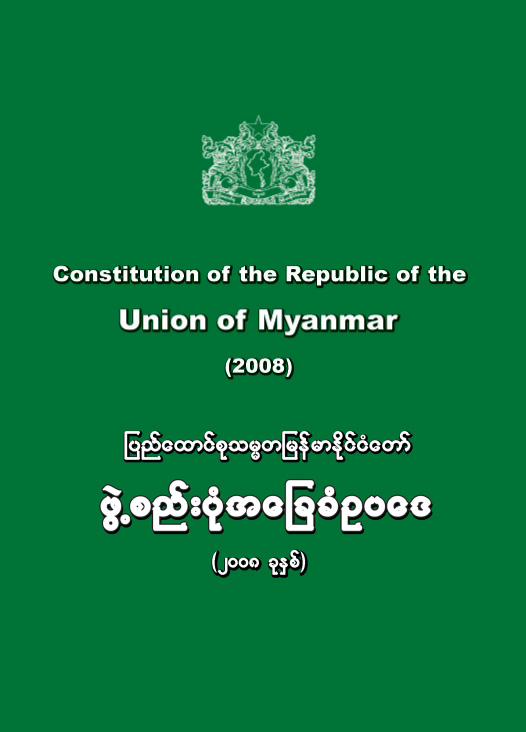 On Tuesday 18 November, Parliamentary Speaker of the lower house of the Burma Parliament Thura Shwe Mann boldly announced – to everyone’s great frustration but no one’s great surprise – that there would be no amendments made to the controversial 2008 Constitution before the 2015 national elections. So, what are the implications of this announcement, and why is the timing significant?
On Tuesday 18 November, Parliamentary Speaker of the lower house of the Burma Parliament Thura Shwe Mann boldly announced – to everyone’s great frustration but no one’s great surprise – that there would be no amendments made to the controversial 2008 Constitution before the 2015 national elections. So, what are the implications of this announcement, and why is the timing significant?
The implications for democracy in Burma are threefold. First, unless Article 59(f) is amended, Daw Aung San Suu Kyi will not be able to lead her NLD party and run for President in the 2015 elections. Although many have long feared the worst, thus far hope has persisted, especially in light of the NLD’s highly successful campaign in favor of constitutional amendment, which attracted five million signatories in support. However, Thura Shwe Mann now seems to be calling time on Daw Aung San Suu Kyi’s political career – and the dreams of so many long-suffering and long-hopeful Burmese – smoothly but ruthlessly side-lining her until such time as she can safely be labeled a political irrelevance, and dumped for good. At the same time, his comments can be interpreted as an oblique, discreet and wily announcement of his own ambitions for a tilt at the presidency next year.
Second, without a significant overhaul of the 2008 Constitution to ensure that the rights, autonomy and self-determination of ethnic minority nationalities are respected and enshrined in law, the peace process does not stand a chance. Fighting rages on in Kachin State – not to mention in northern Shan and Karen State – with no sign of abating. The day after Thura Shwe Mann made his announcement, 23 Kachin and other ethnic nationality soldiers were killed and as many as 15 wounded when Burma Army troops fired on a military training base in Laiza, the strategic headquarters of the Kachin Independence Army. […]
• • •Protection and Security Concerns in South East Burma/ Myanmar
The peace process in Burma/Myanmar1 is at a critical juncture from which it could evolve into a transformative national dialogue or splinter into a divisive charade. While hopes for substantive and inclusive discussion about structural injustice remain, ongoing militarisation and attacks by the national armed forces2 are undermining the confidence of ethnic stakeholders. This report seeks to highlight the protection and security concerns of conflict-affected communities. […]
• • •Sagaing Protestors Say Drug Addicts Need Help
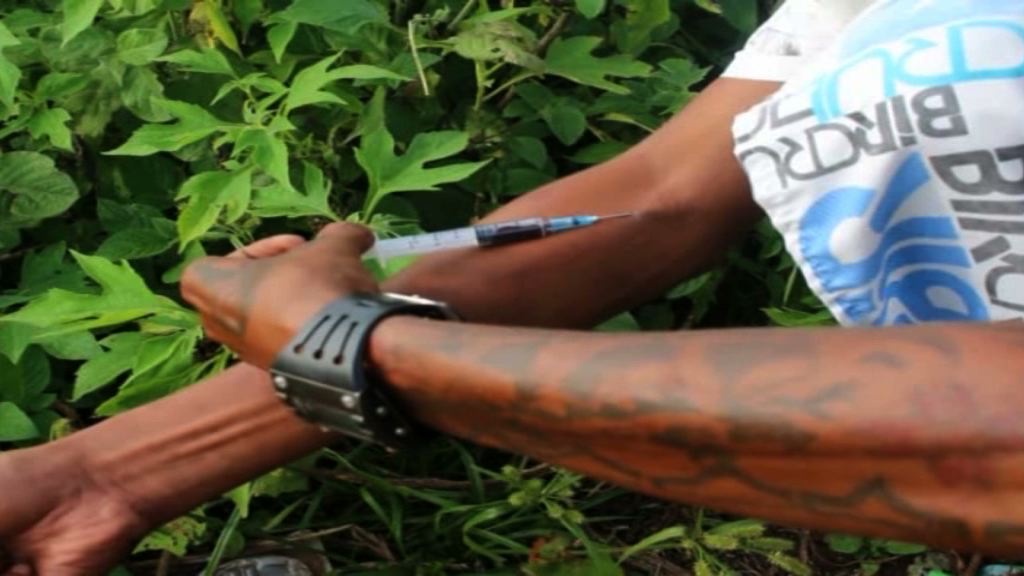 Protestors took to the streets of Banmauk in Sagaing Division this weekend, calling for official measures to tackle rampant drug problems in the region.
Protestors took to the streets of Banmauk in Sagaing Division this weekend, calling for official measures to tackle rampant drug problems in the region.
“My husband died from drug addiction and it left me scared, angry and inconsolable,” said one protestor. “I get very upset seeing young people whose lives are dictated by their drug habit – it brings tears to my eyes […]
• •
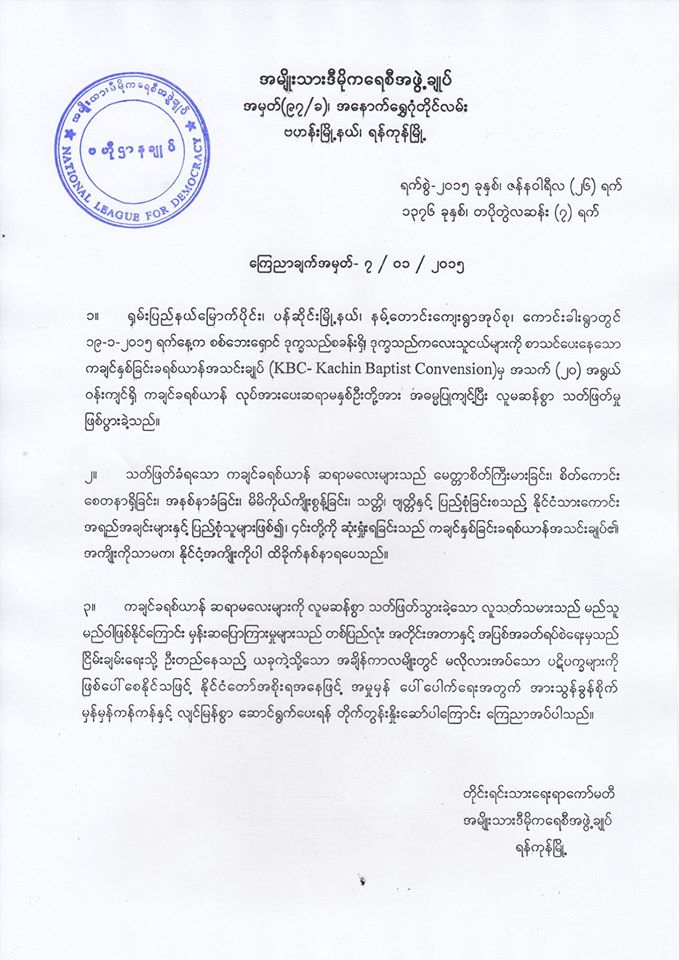
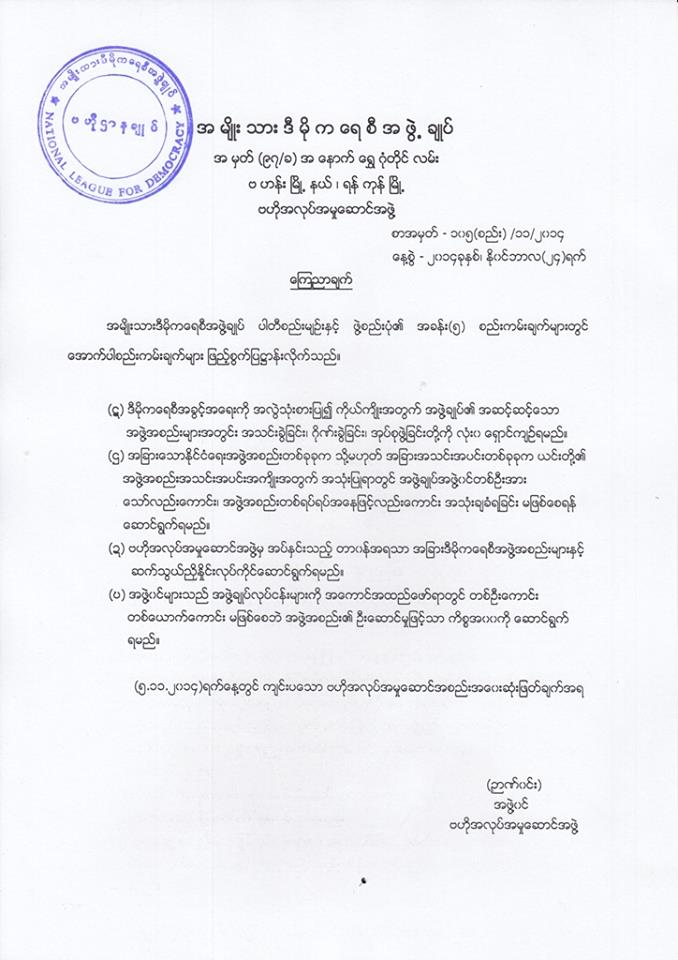
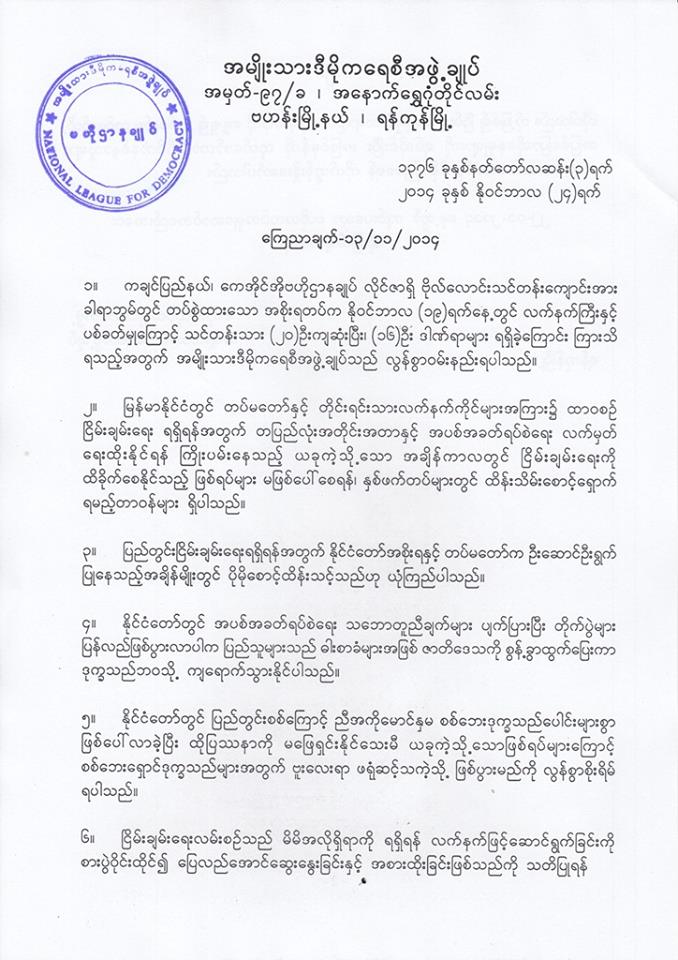
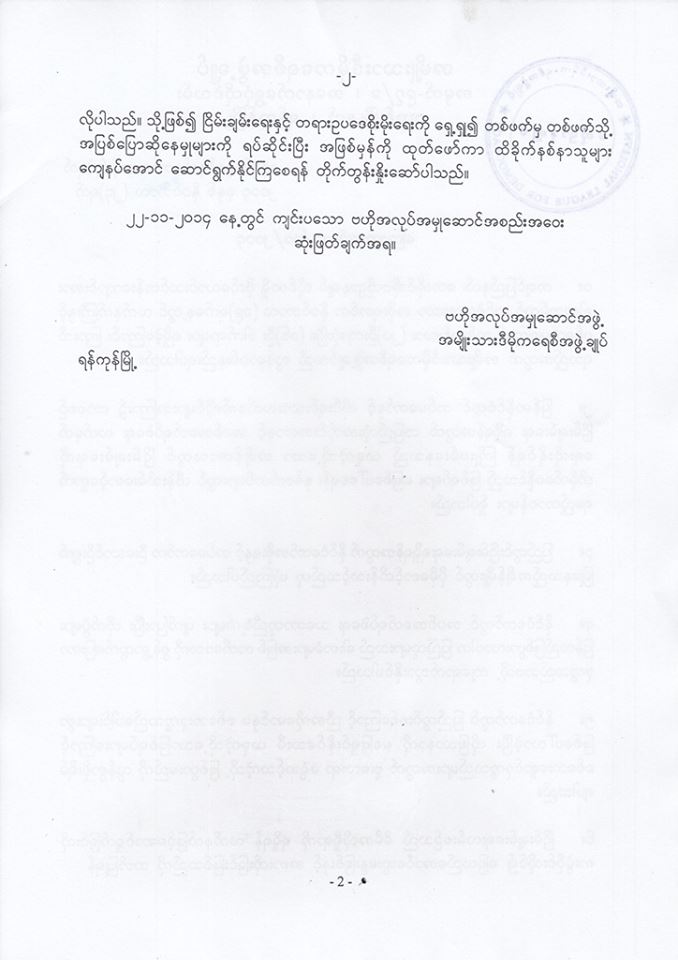
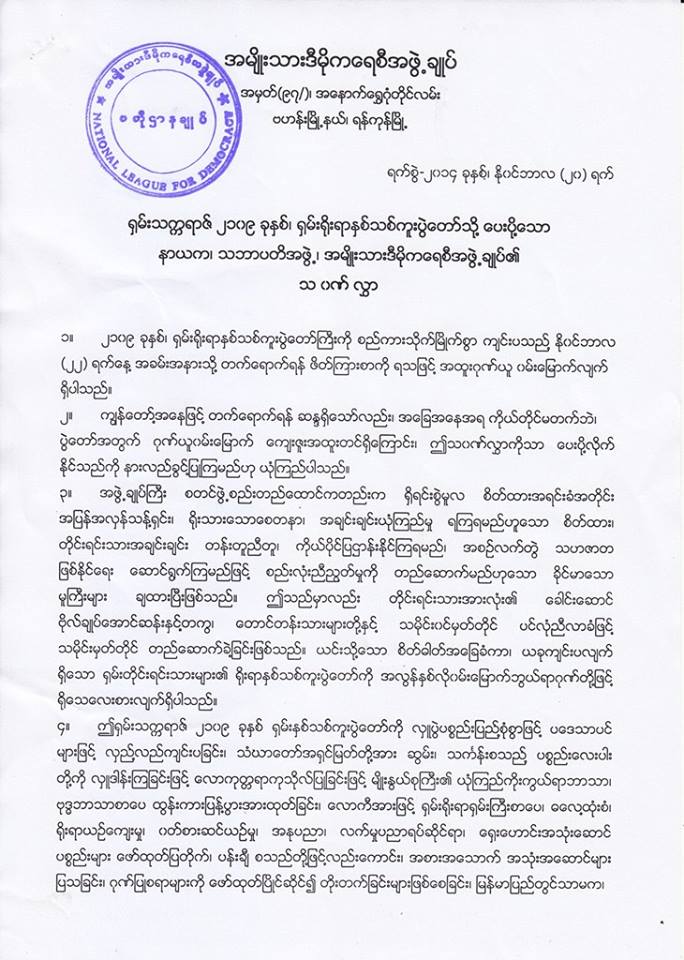
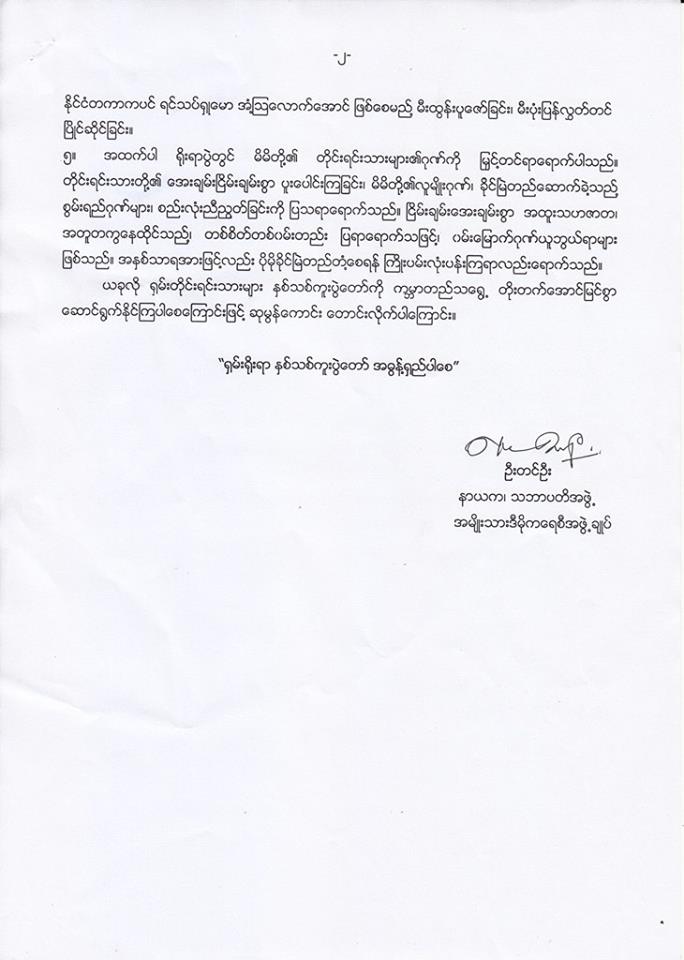
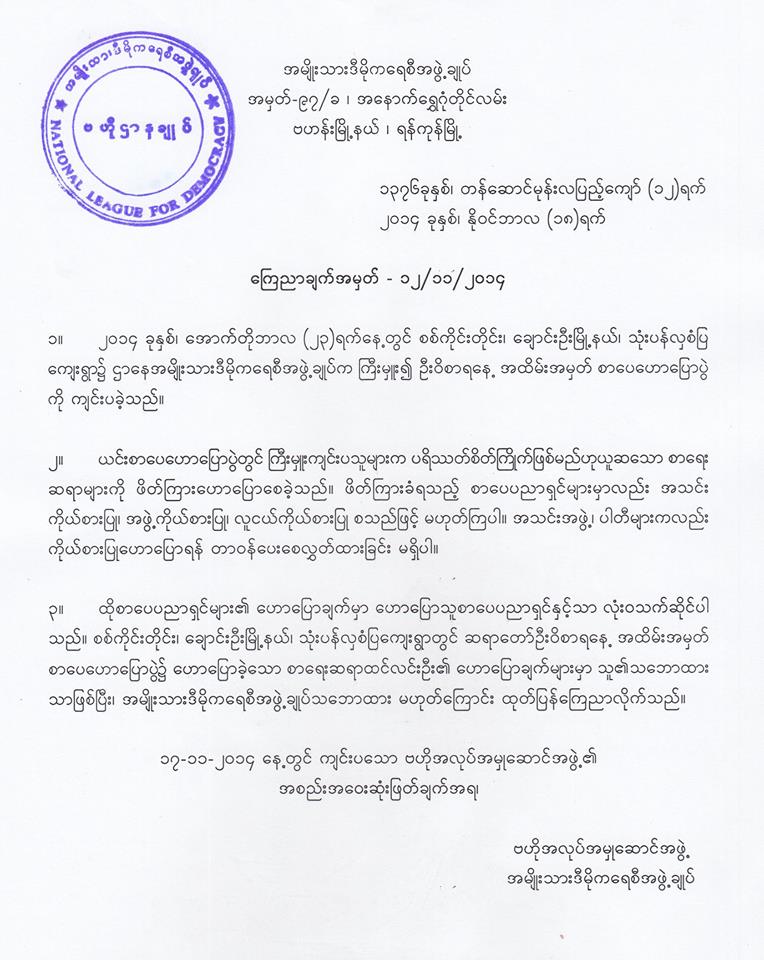
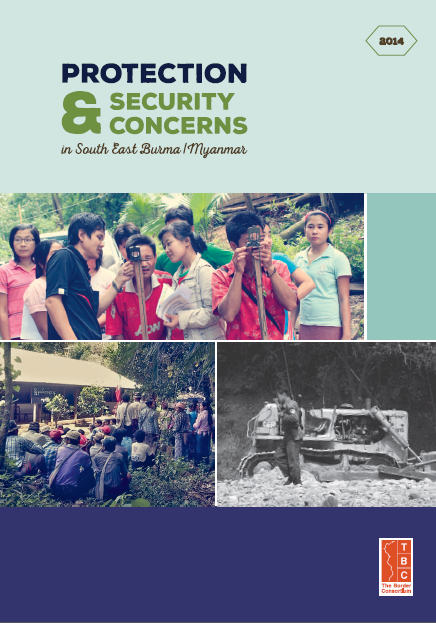








 All posts
All posts